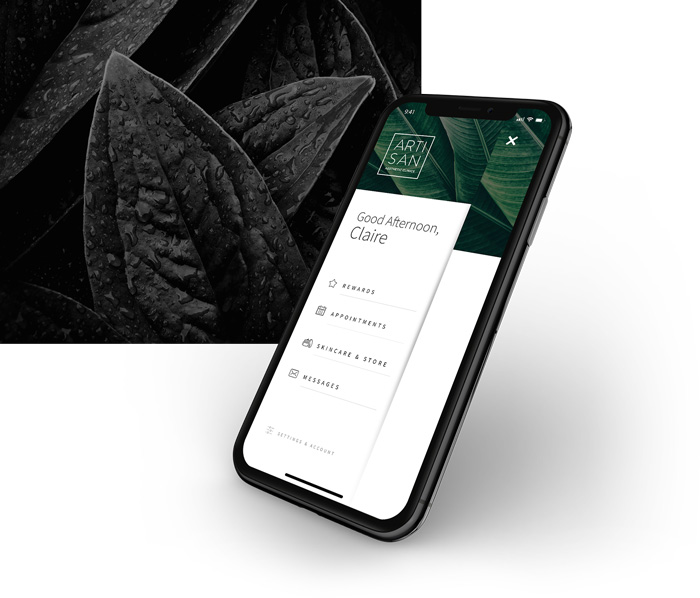The Future of Healthcare: Ingenious Solutions with a Mobile App for Clinics
The Future of Healthcare: Ingenious Solutions with a Mobile App for Clinics
Blog Article
The Future of Healthcare: Why Clinics Need a Mobile App Today
As the healthcare landscape proceeds to advance, clinics face mounting pressure to adapt to patient assumptions for better ease and access. The integration of mobile applications can serve as an essential strategy for boosting person interaction and enhancing procedures.
Altering Client Assumptions
As the landscape of health care progresses, individual assumptions are undertaking a substantial makeover. Today's patients are progressively seeking ease, accessibility, and personalized care.
In addition, patients are ending up being much more informed and encouraged, typically researching therapies and conditions on-line before consultations. This increased awareness is paired with a need for openness in health care processes, consisting of price estimates and therapy choices. Because of this, service providers are compelled to adjust by embracing electronic tools that boost the person experience.
The assumption for efficient and timely interaction has actually never been higher, with lots of people taking into consideration responsiveness an essential element of top quality treatment. mobile app for clinics. In this progressing landscape, healthcare companies have to recognize these transforming expectations and leverage mobile applications to foster an extra patient-centric technique, ensuring that they not just fulfill however go beyond the criteria established by today's informed consumers
Enhancing Person Involvement

Mobile applications promote communication between patients and doctor, enabling real-time appointment scheduling, suggestions for medicine adherence, and straight messaging attributes. These functionalities not only improve convenience but likewise build a sense of accountability amongst people. Mobile applications can use instructional material customized to individual requirements, helping patients better understand their conditions and therapy alternatives.
The assimilation of gamification aspects within healthcare applications can likewise encourage patients to participate in healthy and balanced habits, strengthening positive way of living changes. By tracking progress and rewarding accomplishments, clients are most likely to remain committed to their health and wellness objectives. Eventually, boosting individual involvement through mobile applications causes enhanced health and wellness outcomes, better patient fulfillment, and a much more joint healthcare experience. Facilities that prioritize this aspect will likely see a significant impact on the quality of treatment delivered.
Streamlining Center Workflow
Enhancing clinic operations is necessary for improving operations efficiency and maximizing patient care. The application of mobile applications can dramatically minimize management burdens, enabling doctor to concentrate a lot more on individual interactions. By automating consultation organizing, person check-ins, and billing processes, facilities can decrease wait times and enhance overall functional effectiveness.
Mobile applications also assist in real-time access to client records, making it possible for health care specialists to make educated choices promptly. This immediacy not only enhances the quality of treatment but also decreases the likelihood of mistakes related to lost or dated information. In addition, leveraging mobile technology supports a much more orderly strategy to taking care of client follow-ups and therapy strategies, making sure that no important steps are forgotten.
This allows for timely replenishment and assists avoid interruptions in person care due to equip lacks. By incorporating these functionalities right into their daily operations, clinics can create a much more reliable and natural atmosphere, eventually leading to boosted patient end results and complete satisfaction.
Improving Interaction Networks
Effective interaction is often mentioned as a foundation of quality health care shipment. In today's busy clinical setting, mobile applications can significantly boost interaction networks in between facilities, clients, and healthcare carriers. By integrating mobile apps into their procedures, facilities can promote real-time communications, making sure that clients receive timely info concerning their visits, test results, and therapy plans.
Mobile applications additionally empower people to interact straight with their health care teams with protected messaging functions. This direct line of communication fosters a feeling of engagement and permits instant explanation of issues, which can result in much better adherence to therapy protocols. Additionally, push alerts can remind individuals of upcoming consultations or medicine schedules, lowering no-show rates and boosting overall wellness end results.

Remaining Competitive in Medical Care
In a quickly developing medical care landscape, organizations Continued need to focus on advancement and adaptability to keep a competitive side. The assimilation of mobile applications right into health care solutions is no more optional; it is vital for facilities aiming to improve individual engagement, improve operations, and improve total service shipment.
As patients progressively rely on electronic systems for wellness management, centers that stop working to embrace mobile innovation threat dropping behind. A well-designed mobile app can provide features such as consultation scheduling, click for more telemedicine examinations, and accessibility to clinical records, supplying patients with benefit and fostering loyalty.

Rivals are also buying mobile options, so staying ahead needs continuous enhancement and remaining informed about technical developments. Facilities have to not only execute mobile applications but also engage in regular updates and refinements. Inevitably, the successful assimilation of mobile technology will distinguish forward-thinking healthcare companies and set the criteria for patient-centric treatment in a digital globe.
Final Thought
In verdict, the combination of mobile applications in facilities is critical to deal with the evolving landscape of patient expectations. Ultimately, the critical execution of mobile apps stands for a crucial step towards supplying accessible and tailored health care, thus fulfilling the requirements of today's encouraged people.
Ultimately, enhancing patient engagement via mobile applications leads to improved health and wellness outcomes, greater client contentment, and a much more joint medical care experience.Mobile apps also help with real-time access read the full info here to patient documents, enabling healthcare specialists to make informed choices promptly. In today's fast-paced clinical atmosphere, mobile applications can significantly boost communication channels between clinics, individuals, and healthcare providers.Mobile apps likewise encourage clients to connect directly with their healthcare groups via safe messaging features. Ultimately, the critical implementation of mobile apps stands for an important step toward delivering easily accessible and personalized health care, thereby satisfying the demands of today's encouraged people.
Report this page